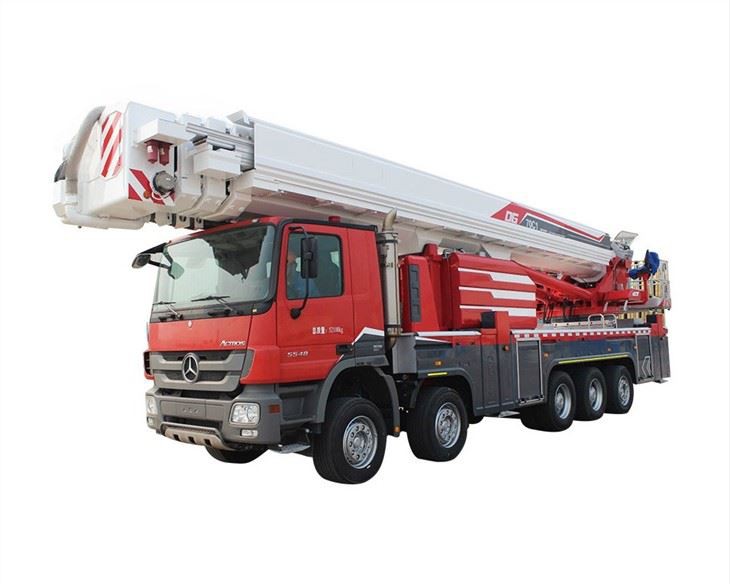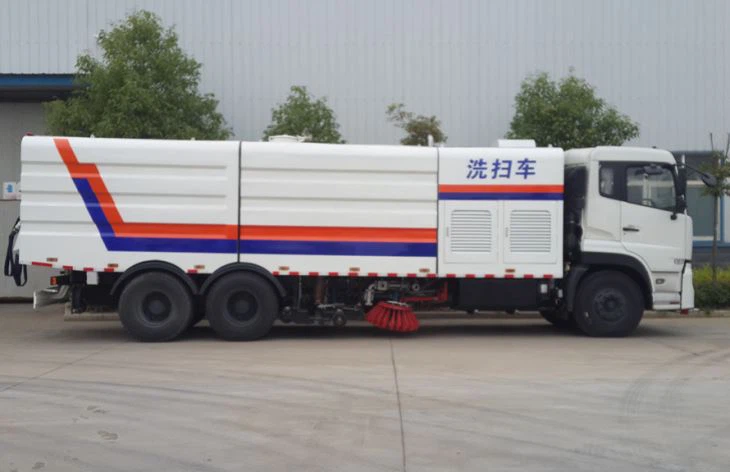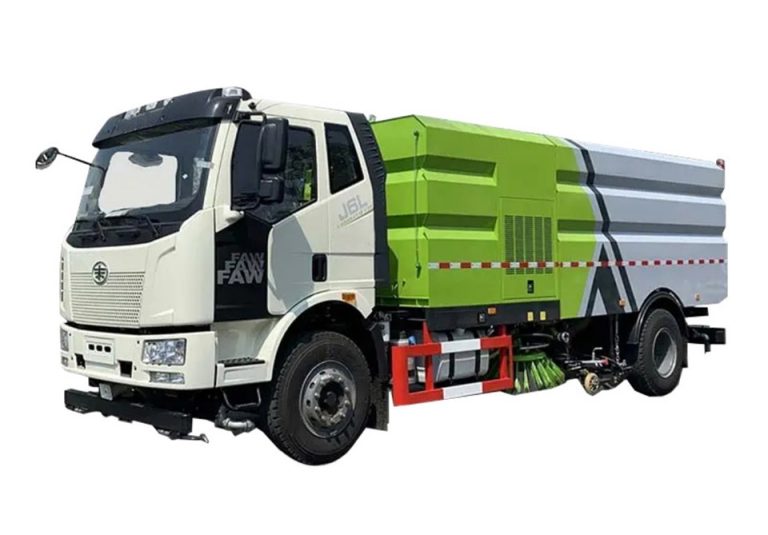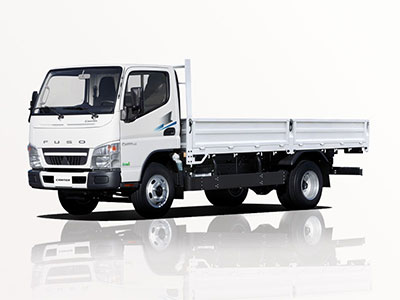When it comes to heavy-duty transportation, the 30 ton truck stands out as a reliable workhorse across various industries. Whether you are involved in construction, logistics, or any business requiring the transportation of significant loads, a 30 ton truck can be your vital asset. This article will delve deep into the world of 30 ton trucks, covering everything from specifications to their operational benefits, maintenance, and much more.
What is a 30 Ton Truck?
A 30 ton truck typically refers to a heavy-duty vehicle capable of carrying a gross weight of up to 30,000 kilograms or approximately 66,138 pounds. This category includes various truck types, such as flatbeds, box trucks, and dump trucks. Understanding the specifications and capabilities of these trucks is essential for making informed decisions in both commercial and industrial transport scenarios.
Types of 30 Ton Trucks
There are several types of 30 ton trucks, each designed for various applications. Below are some of the most common types:
1. Flatbed Trucks
Flatbed trucks have a flat platform without sides or a roof, allowing for easy loading and unloading of goods. They are widely used for transporting construction materials, machinery, and oversized cargo.
2. Box Trucks
Box trucks feature an enclosed cargo area, providing protection for goods from weather and theft. They are often used in the logistics and moving industry.
3. Dump Trucks
Dump trucks are designed for transporting bulk materials like gravel, sand, or demolition waste. They can unload their cargo quickly and efficiently by raising the bed of the truck.
4. Refrigerated Trucks
These trucks are equipped with temperature-controlled units, making them ideal for transporting perishable goods like food and pharmaceuticals. Refrigerated 30 ton trucks are essential for businesses in the food supply chain.
Specifications of a 30 Ton Truck
When evaluating a 30 ton truck, consider the following key specifications:
| Specification | Description |
|---|---|
| Gross Vehicle Weight Rating (GVWR) | 30,000 kg (66,138 lbs) |
| Payload Capacity | Typically around 18,000 kg (39,683 lbs), depending on truck configuration |
| Engine Power | Generally between 200-500 horsepower |
| Transmission | Manual or automatic options, commonly 6 to 10-speed |
| Wheelbase | Varies, generally between 3,800 mm to 5,000 mm (149 in to 197 in) |
| Length | Can range from 6,500 mm to 10,000 mm (256 in to 394 in) |
| Fuel Type | Diesel or alternative fuel options |
Benefits of Using a 30 Ton Truck
Choosing a 30 ton truck for your transportation needs comes with numerous benefits:
1. High Payload Capacity
With a payload capacity that can handle significant weights, these trucks are ideal for transporting heavy machinery, building materials, and other substantial loads. Businesses can optimize their logistics and complete tasks in fewer trips, ultimately saving time and costs.
2. Versatility
30 ton trucks can be configured for various industries and purposes. Their adaptability in terms of body types and features makes them suitable for numerous applications, from construction and waste management to food transportation.
3. Fuel Efficiency
Modern 30 ton trucks often come equipped with advanced engine technology to enhance fuel efficiency. Companies can benefit from lower operating costs, provided they select vehicles with high fuel economy ratings.
4. Increased Safety Features
Most 30 ton trucks are outfitted with advanced safety features such as ABS brakes, stability control, and collision warning systems. These features are designed to help reduce accidents and ensure safer driving conditions for operators.
Operational Guidelines for 30 Ton Trucks
Operating a 30 ton truck efficiently goes beyond just driving; it involves understanding operational guidelines to maximize performance and safety.
1. Proper Training for Drivers
Drivers should undergo rigorous training, which includes theoretical instruction and hands-on practice. This training should cover the vehicle’s operating systems, safety features, and protocols for loading and unloading cargo.
2. Regular Maintenance
Maintaining a 30 ton truck is essential for ensuring its longevity and superior performance. Consider the following maintenance tips:
- Regular oil changes
- Routine inspections of brakes and tires
- Checking fluid levels
- Keeping the truck clean to prevent rust and corrosion
3. Load Distribution
Proper load distribution is crucial for stable operation. Cargo should be balanced evenly across the vehicle to prevent tipping and improve fuel efficiency. Following guidelines established in the truck’s manual helps in determining optimal loading practices.
4. Weight Compliance
Always adhere to local weight regulations. Overloading a truck can lead to significant penalties and compromise safety. Be mindful of gross vehicle weight limits and ensure the truck is weighed when required.
5. Route Planning
Effective route planning can save time and fuel. Use GPS and mapping software to determine optimal paths, avoiding any low bridges, weight stations, and high-traffic areas whenever possible.
Cost Considerations for a 30 Ton Truck
The costs associated with acquiring and operating a 30 ton truck can vary significantly based on several factors, which include:
1. Purchase or Lease Costs
The initial investment in a 30 ton truck can be substantial, with prices typically ranging from $50,000 to over $100,000. Businesses often choose to purchase outright or lease the vehicle, depending on their financial strategy.
2. Insurance Costs
Insurance is another significant cost that should not be overlooked. The premium rates will depend on factors such as the driver’s experience, coverage level, and the type of goods being transported. Businesses should shop around for the best rates to ensure their investment is protected.
3. Fuel and Maintenance Costs
Fuel costs will vary depending on fuel prices and the truck’s efficiency. Regular maintenance should also be factored into the operational cost, with businesses budgeting for routine service to prevent major issues down the line.
Choosing the Right 30 Ton Truck
Selecting the right 30 ton truck can be a daunting task, given the plethora of options available. Here are some tips to assist in making the right choice:
1. Evaluate Purpose
Start by defining the truck’s primary purpose. Will it primarily transport heavy machinery, construction materials, or long-distance shipping? Understanding its intended use will guide you in selecting the appropriate type and specifications.
2. Consider Brand and Model
Not all brands are created equal. Research different manufacturers and their reputation for quality and reliability. Popular brands such as Volvo, Scania, and Mercedes-Benz offer trusted models in the 30 ton range.
3. Test Drive
Before making a purchase, always take the truck for a test drive. This allows you to assess its handling, comfort, and features firsthand.
4. Assess Warranty and After-Sales Support
A comprehensive warranty and excellent after-sales support can save significant headaches in the long run. Check the warranty coverage and services provided by the dealership or manufacturer.
FAQs About 30 Ton Trucks
1. What is the average lifespan of a 30 ton truck?
The average lifespan of a 30 ton truck can range from 10 to 15 years, depending on maintenance and usage conditions.
2. Can a 30 ton truck be modified?
Yes, 30 ton trucks can be customized or modified according to specific needs, such as adding specialized cargo areas or upgrading safety features.
3. How much can a 30 ton truck carry?
A 30 ton truck has a payload capacity of approximately 18,000 kg (39,683 lbs), although this can vary depending on the truck’s configuration.
4. Is special licensing required to drive a 30 ton truck?
Yes, driving a 30 ton truck typically requires a commercial driver’s license (CDL) or equivalent in most jurisdictions, along with specific endorsements based on the vehicle type.
5. What types of cargo are best suited for a 30 ton truck?
30 ton trucks are versatile and can handle a variety of cargo types, including construction materials, equipment, furniture, and perishables, depending on the truck configuration.
6. How do I improve the fuel efficiency of my 30 ton truck?
Improving fuel efficiency can be achieved through regular maintenance, proper load distribution, avoiding excessive idling, and using fuel-efficient driving techniques.



